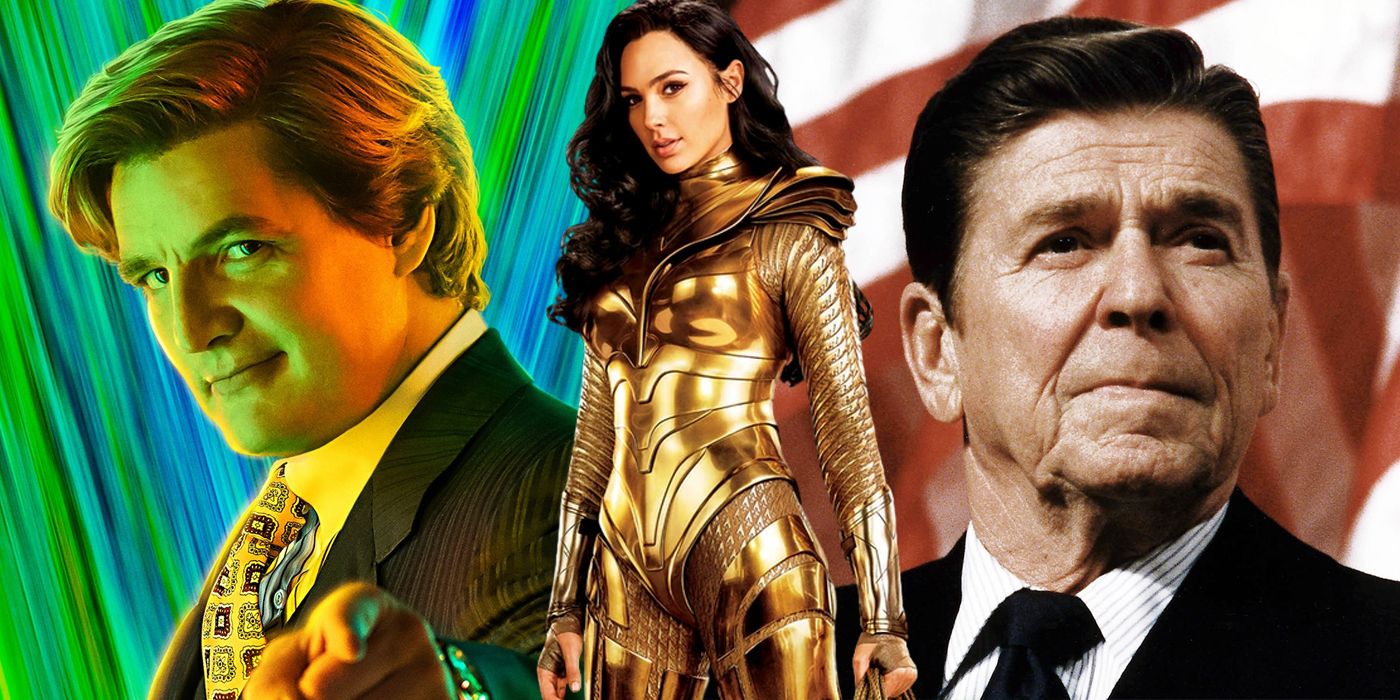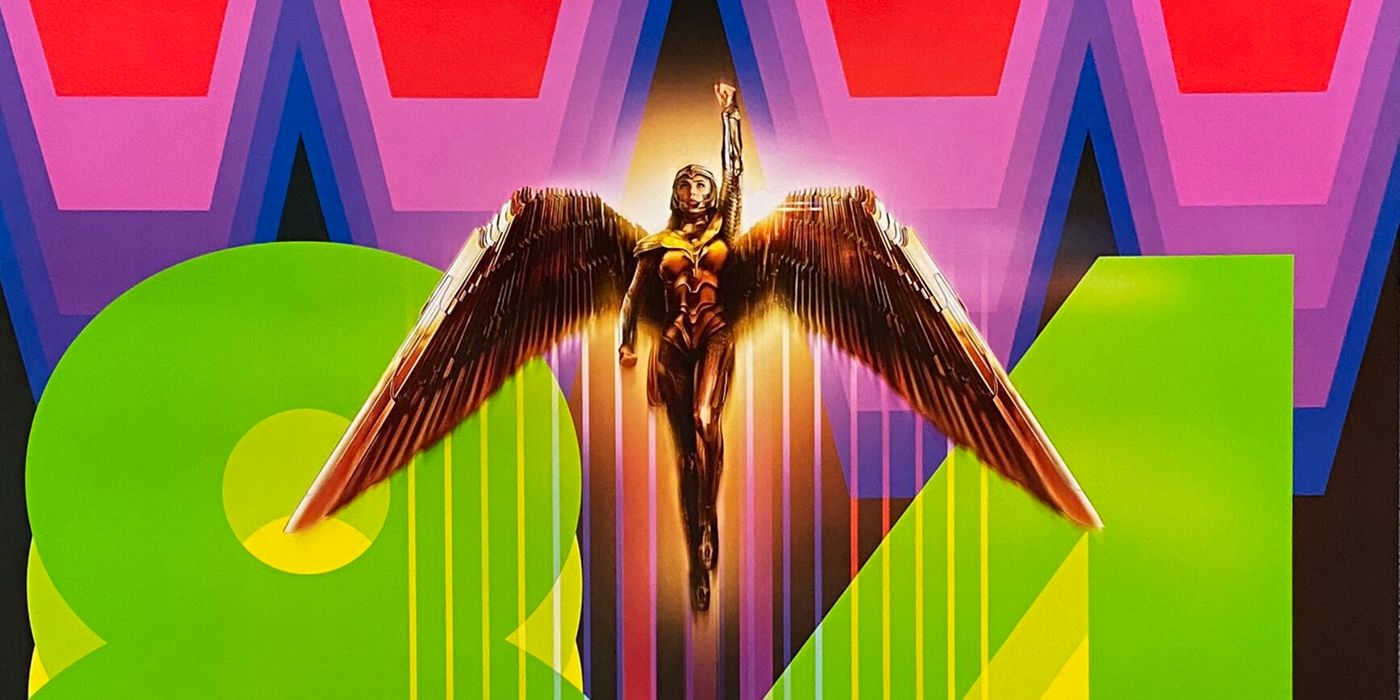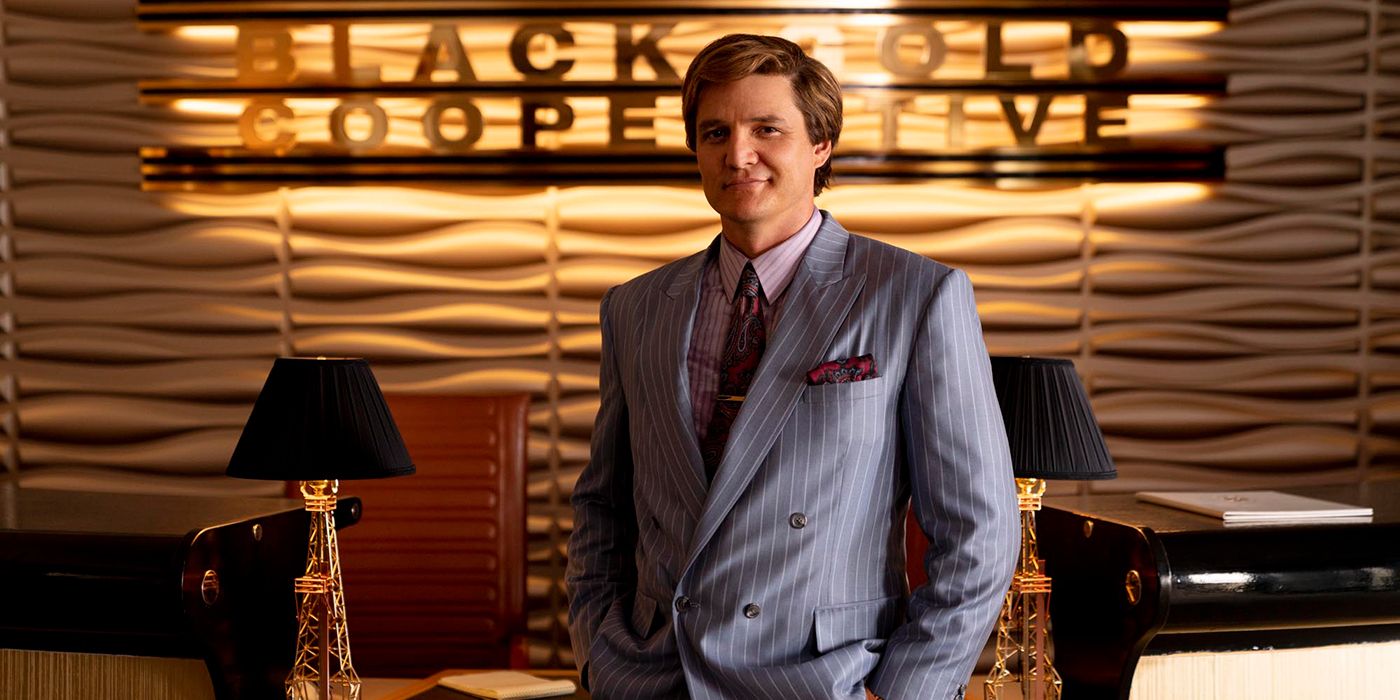In a year that sounds as futuristic as “2020,” the 1980’s reign supreme: Stranger Things is among the most popular television shows around, the synth-heavy "Vaporwave" music genre has an entire online subculture of its own, and the biggest superhero movie of 2020 drops the most famous female superhero of all time in the middle of the decade. The so-called "cycle of nostalgia" is spinning right round like a record, and it's not stopping any time soon.
With a title proudly displaying its setting, it’s easy to assume Wonder Woman 1984 is cashing in on the craze while simultaneously telling a standalone story free from the grips of the muddied DC Extended Universe timeline. However, by the time the movie enters its grand finale, it’s clear the film has something specific to say about its setting. Could Wonder Woman 1984 be the ultimate anti-1980s film?
For one thing, WW84’s decision to take place specifically in ‘84 comes off a little random at first - why not ‘82, ‘85, or ‘88? In a 2019 interview on Deadline's Crew Call podcast, Wonder Woman 1984 director Patty Jenkins claimed she chose to set the film in 1984 because of its economic significance: "I think it was the pinnacle of the success in the ‘80s, in my opinion, because it’s before the market started to get a little more struggling as the ‘80s went on,” she explained. “I feel like there’s something about the excess of that period of time, which is so linked up to where we are in the world right now, that it’s set there for a reason.”
Jenkins may have mentioned the years that followed ‘84, but the years that came before are just as important to the year’s context. Today, the 1980s are remembered as a peaceful and prosperous time with wild hair and wilder parties, but they certainly didn’t start that way. The United States (and the world at large) kicked off the decade with its worst economic recession since World War II, lasting until 1983. President Ronald Reagan and his administration put into place economic policies that gradually brought the country back on its feet until it entered a rebounding boom in '84. By all accounts, 1984 marked the beginning of “The ‘80s” as it’s branded today - a time of substantial economic growth and pop-cultural domination, often reminisced today by those old enough to remember it.
That reminiscence is reflected in the film’s reintroduction of its leading lady: set in a vibrant, glowing indoor mall and packed with denizens in era-appropriate attire, Diana’s public display of superheroism launches the character into peak ‘80s iconography. Once trudging through the trenches of World War One in 2017’s Wonder Woman, the Godkiller is now leaps and bounds forward in time, arriving at the analog obsession and financial optimism that has come to define the ‘80s through a modern nostalgic lens. In that sense, Wonder Woman 1984 appears to be a celebration of the decade (and its effect on American culture specifically), further supported by its exceedingly sunny color palette and achingly sincere score.
However, where the film deviates from its worship of the 1980s is within its antagonist, Pedro Pascal’s Maxwell Lord. It’s easy to draw parallels between Lord, a failing corrupt businessman best known as a TV personality with a single famous catchphrase (“Life is good... but it can be better!”) and a certain real-life politician/TV personality. The film is certainly inviting those comparisons, especially during the not-so-subtle final battle between Diana and Lord, taking place within a replica of the White House press briefing room. However, Lord’s behavior and decisions throughout the film echo one of the more controversial economic principles of the Reagan administration: deregulation.
Reagan believed the US government’s oversight in the so-called “free market” had suffocated the country’s economy throughout the tumultuous 1970’s - he and his administration antagonized economic regulation and, as a result, loosened the federal grip on major American industries. In doing so, the economy was free to gain the momentum it needed to bounce back in ‘84. However, for all its successful results, it opened an economic power vacuum that overwhelmed smaller American businesses and allowed corporations and oligarchs to seize control. Without interference, opportunistic capitalists were free to supersize the market - and their profits in turn. The 1980s were defined by unstable excess fuelled by unmitigated greed, and it’s from this dark side of the decade that Maxwell Lord emerges.
Upon absorbing the mythical Dreamstone, Lord becomes obsessed with overtaking control of the oil industry, lending his new wish-granting powers to oil barons around the world in exchange for their share of the market. As he grants more and more wishes, his body physically deteriorates, a result of the Dreamstone’s “Monkey’s Paw” logic - every wish granted comes at an unknown cost. However, Lord discovers a workaround - as long as the person wishes for “more,” he can restore his life force. “I’ve never been one for rules,” he tells Kristen Wiig’s Barbara Minerva. “The answer is always more.”
Lord, representing the full might of unregulated capitalism, quickly rises to power, and the world around him falls to utter chaos. People take to the streets as American civilization tips out of balance, made especially poignant by the bedlam’s primary location, Washington D.C. As everyday citizens around the world wish for "more," the planet reaches a climactic fever pitch, minutes away from nuclear war.
Wonder Woman 1984’s central villain is fuelled by the unchecked excess of the 1980s American economy. When Lord uses his powers to take the presidency under his control, Patty Jenkins’ aforementioned connection between 1984 and 2020 becomes clear, but the film is more focused on the cause in the ‘80s that led to the effect in the 2010s: the polarizing deregulation practices of the former lay the groundwork for the political climate in the United States today.
Wonder Woman 1984 falters in many of its thematic and creative decisions, but its biting commentary on the long-term consequences of the ‘80s American economy is difficult to ignore. Instead of basking in the glow of ‘80s nostalgia like so much other media, it draws a point of origin to the most unavoidable issues plaguing the United States today. Although Wonder Woman can't exactly stop corrupt capitalism and controversial economic principles, she can at least show the world why the '80s are not the spotless decade so many perceive.




